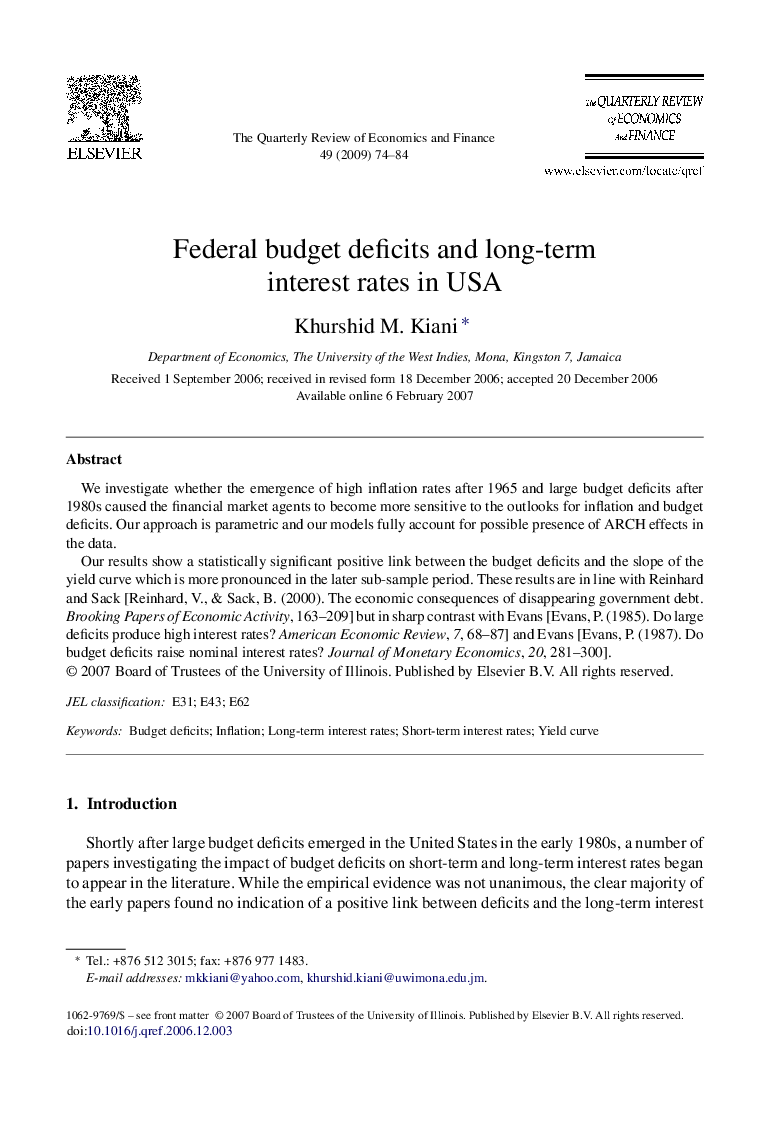| کد مقاله | کد نشریه | سال انتشار | مقاله انگلیسی | نسخه تمام متن |
|---|---|---|---|---|
| 983347 | 1480469 | 2009 | 11 صفحه PDF | دانلود رایگان |

We investigate whether the emergence of high inflation rates after 1965 and large budget deficits after 1980s caused the financial market agents to become more sensitive to the outlooks for inflation and budget deficits. Our approach is parametric and our models fully account for possible presence of ARCH effects in the data.Our results show a statistically significant positive link between the budget deficits and the slope of the yield curve which is more pronounced in the later sub-sample period. These results are in line with Reinhard and Sack [Reinhard, V., & Sack, B. (2000). The economic consequences of disappearing government debt. Brooking Papers of Economic Activity, 163–209] but in sharp contrast with Evans [Evans, P. (1985). Do large deficits produce high interest rates? American Economic Review, 7, 68–87] and Evans [Evans, P. (1987). Do budget deficits raise nominal interest rates? Journal of Monetary Economics, 20, 281–300].
Journal: The Quarterly Review of Economics and Finance - Volume 49, Issue 1, February 2009, Pages 74–84